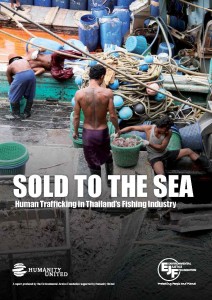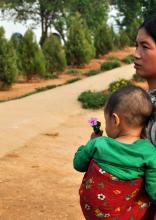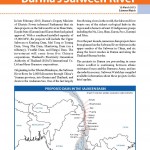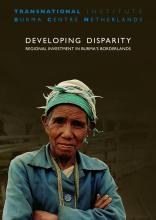Environmental and Economic Justice (103 found)
Conflicting Realities: Reform, Repression and Human Rights in Burma
This report by the Subcommittee on International Human Rights is intended to recognize the important achievements brought about as part of Burma’s reform process, in particular the election of Daw Aung San Suu Kyi and other candidates from the NLD as Members of Parliament (MP) this April. At the same time, we wish to warn against hasty or irresponsible optimism and to sound the alarm about the lack of civilian control over the Burmese military, which has very serious human rights and humanitarian consequences. Recent progress has not yet extended to all parts of the country, nor to all of the people of Burma. Going forward, we believe that it is important for the international community to look beyond central Burma in assessing the depth and sincerity of the country’s reforms. Respect by the Burmese government and military for human rights and international law in Burma’s ethnic minority
areas will be the real measure of change in the country and should inform any decision regarding the permanent removal of sanctions by Canada […]
Sold to the Sea: Human Trafficking in Thailand’s Fishing Industry
 Human trafficking is a global problem. It is estimated that as many as 27 million men, women and children are currently victims of human trafficking around the world.
Human trafficking is a global problem. It is estimated that as many as 27 million men, women and children are currently victims of human trafficking around the world.
Thailand is the 32nd largest economy in the world, with a GDP of $377 billion and a growth rate of 5.5 per cent in 2012.2/3 It also has one of the lowest unemployment rates globally, at 0.5 per cent in December 2012.
Thailand’s economy is heavily reliant on labour-intensive industries. However, growing economic prosperity since the late 1980s has seen a decline in the available Thai workforce needed to meet the labour demand.5 In 2009, Thailand’s Ministry of Labour estimated that an additional 116,000 workers would be needed to address the labour-market imbalance […]
• • •The Revenue Watch 2013 Resource Governance Index
The Resource Governance Index (RGI) measures the quality of governance in the oil, gas and mining sector of 58 countries. From highly ranked countries like Norway, the United Kingdom and Brazil to lowranking countries like Qatar, Turkmenistan and Myanmar, the Index identifies […]
• • •Access Denied: Land Rights and Ethnic Conflict in Burma
 The reform process in Burma/Myanmar1 by the quasi-civilian government of President Thein Sein has raised hopes that a long overdue solution can be found to more than 60 years of devastating civil war. Burma’s ethnic minority groups have long felt marginalized and discriminated against, resulting in a large number of ethnic armed opposition groups fighting the central government – dominated by the ethnic Burman majority – for ethnic rights and autonomy. The fighting has taken place mostly in Burma’s borderlands where ethnic minorities are most concentrated […]
The reform process in Burma/Myanmar1 by the quasi-civilian government of President Thein Sein has raised hopes that a long overdue solution can be found to more than 60 years of devastating civil war. Burma’s ethnic minority groups have long felt marginalized and discriminated against, resulting in a large number of ethnic armed opposition groups fighting the central government – dominated by the ethnic Burman majority – for ethnic rights and autonomy. The fighting has taken place mostly in Burma’s borderlands where ethnic minorities are most concentrated […]
“There is No Benefit, They Destroyed our Farmland”
This periodic update is limited in scope to provide a snapshot of overall project development. However, other impacts have been documented along the pipeline route, including environmental harms, lack of local benefits, and human rights violations, including severe human impacts in northern Shan State […]
• • •Current Status of Dam Projects on Burma’s Salween River
 In late February 2013, Burma’s Deputy Minister of Electric Power informed Parliament that six dam projects on the Salween River in Shan State, Kayah State (Karenni) and Karen State had gained approval. With a combined installed capacity of 15,000 MW, the projects will include the Upper Salween or Kunlong Dam, Mai Tong or Tasang Dam, Nong Pha Dam, Mantawng Dam (on a tributary), Ywathit Dam, and Hatgyi Dam. The investment will come from five Chinese corporations, Thailand’s Electricity Generation Authority of Thailand (EGAT) International Co. Ltd and three Burmese corporations.
In late February 2013, Burma’s Deputy Minister of Electric Power informed Parliament that six dam projects on the Salween River in Shan State, Kayah State (Karenni) and Karen State had gained approval. With a combined installed capacity of 15,000 MW, the projects will include the Upper Salween or Kunlong Dam, Mai Tong or Tasang Dam, Nong Pha Dam, Mantawng Dam (on a tributary), Ywathit Dam, and Hatgyi Dam. The investment will come from five Chinese corporations, Thailand’s Electricity Generation Authority of Thailand (EGAT) International Co. Ltd and three Burmese corporations.
စစ္ကိုင္းတိုင္းေဒသၾကီး မံုရြာခရိုင္၊ ဆားလင္းၾကီးျမိဳ႕နယ္ လက္ပန္ေတာင္းေတာင္ ေၾကးနီစီမံကိန္း စံုစမ္းစစ္ေဆးေရး ေကာ္မရွင္၏ အျပီးသတ္အစီရင္ခံစာ
၂၀၁၂ ခုႏွစ္ ႏိုဝင္ဘာလ ၂၃ ရက္တြင္ က်င္းပေသာ ျပည္သူ႕လႊတ္ေတာ္ အစည္းအေဝး၌တင္သြင္းခဲ့သည့္ အေရးၾကီးအဆိုတြင္ စစ္ကိုင္းတိုင္းေဒ သၾကီး မံုရြာခရိုင္ ဆားလင္းၾကီးျမိဳ႕နယ္ လက္ပန္ေတာင္းေတာင္ ေၾကးနီစီမံကိန္းႏွင့္ စပ္လ်ဥ္း၍ ေၾကးနီမိုင္းလုပ္ငန္း ဆက္လက္ေဆာင္ရြက္ခြင့္ျပဳရန္ သင့္မသင့္ စံုစမ္းစစ္ေဆးေရး ေကာ္မရွင္ကို ဟ…“
• • •Losing Ground: Land Conflicts and Collective Action in Eastern Myanmar
Analysis of KHRG’s field information gathered between January 2011 and November 2012 in seven geographic research areas in eastern Myanmar indicates that natural resource extraction and development projects undertaken or facilitated by civil and military State authorities […]
• • •Developing Disparity: Regional Investment in Burma’s Borderlands
 Unless foreign direct investment in Burma’s war-torn borderlands is refocused towards people-centered development, it is likely to deepen disparity between the region’s most neglected peoples and Burma’s new military, business and political elite and exacerbate a decades-long civil war.
Unless foreign direct investment in Burma’s war-torn borderlands is refocused towards people-centered development, it is likely to deepen disparity between the region’s most neglected peoples and Burma’s new military, business and political elite and exacerbate a decades-long civil war.
Burma has entered a pivotal stage in its political and economic development. The advent of a new quasi-civilian government has raised the prospect of fundamental reforms […]
Report of Evidence Regarding Controversies at Letpadaung Hill Copper Mine Project
Executive Summary This report was prepared by Lawyers Network, an independent association of leading lawyers throughout Myanmar, and Justice Trust, an international group that supports national efforts to advance rule of law and human rights. It concerns recent controversies at a Letpadaung copper mine, a joint venture between Wanbao Mining, a subsidiary of North China […]
• • •
 All posts
All posts